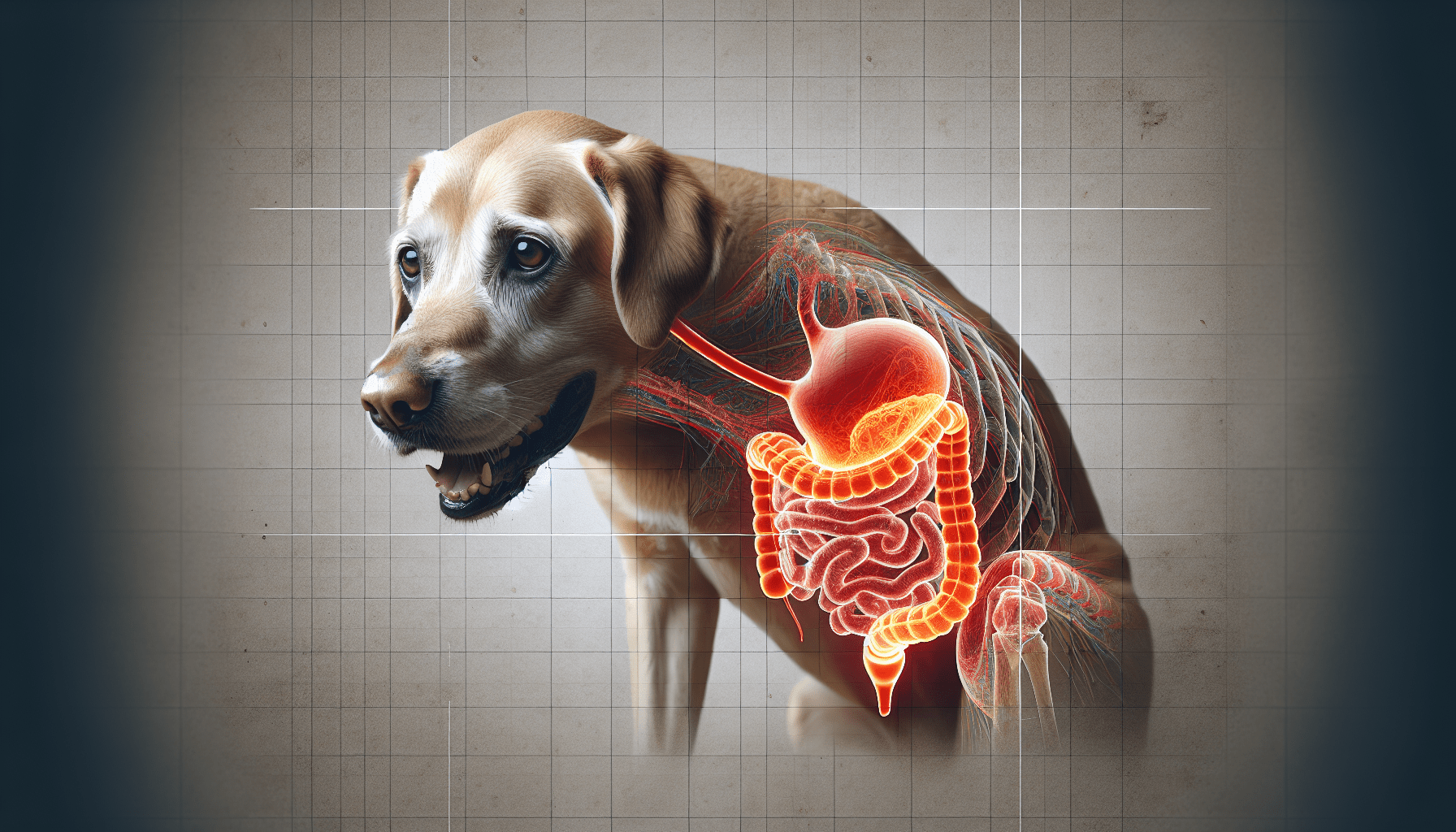Welcome to an informative guide on understanding and addressing canine digestive issues. Your furry companion’s digestive health is crucial for their overall well-being, and knowing how to recognize and address potential issues is key to keeping them happy and healthy. In this article, we will explore common digestive problems in dogs, potential causes, and practical tips for maintaining a healthy digestive system in your pup. Let’s dive in and learn how to best support your furry friend’s digestive health. Have you ever noticed that your furry friend is experiencing digestive issues? It can be quite concerning when your beloved canine companion is not feeling their best, but fear not! With a bit of knowledge and the right approach, you can help address and alleviate your dog’s digestive problems. Let’s dive into the world of canine digestive health and explore some helpful tips and tricks to keep your pup happy and healthy.

Understanding Canine Digestive System
Your dog’s digestive system plays a vital role in their overall health and well-being. Understanding how it works can give you valuable insights into how to keep your pup’s tummy in top shape.
The Digestive Process
Dog’s digestive systems are quite similar to humans, with a few key differences. The process starts in the mouth, where enzymes begin breaking down food as it’s chewed. From there, the food travels through the esophagus to the stomach, where it gets mixed with stomach acid to further break it down. The food then moves to the small intestine, where nutrients are absorbed, and finally to the large intestine, where water is absorbed, and waste is formed.
Common Digestive Issues in Dogs
Just like humans, dogs can experience a variety of digestive issues that can cause discomfort and distress. It’s essential to be aware of these common problems and know how to address them effectively.
Diarrhea
Diarrhea is a prevalent issue in dogs and can be caused by a variety of factors, including dietary indiscretion, parasites, infections, or food allergies. It’s essential to monitor your dog’s stools and consult with your vet if diarrhea persists for more than a day.
Vomiting
Vomiting can be a symptom of various underlying issues, such as gastrointestinal problems, infections, or ingestion of toxic substances. If your dog is vomiting frequently or excessively, it’s crucial to seek veterinary care to determine the cause and appropriate treatment.
Constipation
Constipation can occur when your dog has difficulty passing stool, leading to discomfort and straining during bowel movements. Increasing fiber intake, hydration, and exercise can help alleviate constipation in dogs.
Factors Affecting Canine Digestive Health
Several factors can influence your dog’s digestive health, from diet and hydration to stress and overall wellness. Being mindful of these factors can help you maintain your pup’s digestive system in optimal condition.
Diet
Your dog’s diet plays a significant role in their digestive health. A balanced and nutritious diet tailored to your dog’s age, breed, and health condition is essential for proper digestion. Avoid giving your dog table scraps or foods that are toxic to dogs, such as chocolate, grapes, or onions.
Hydration
Proper hydration is crucial for maintaining good digestive health in dogs. Make sure your pup has access to fresh, clean water at all times and monitor their water intake, especially during hot weather or increased activity.
Stress
Stress can have a significant impact on your dog’s digestive system, leading to issues such as diarrhea or vomiting. Be mindful of stressful situations for your dog, such as loud noises, changes in routine, or visits to the vet, and provide a calm and comforting environment to help alleviate stress.
Tips for Addressing Canine Digestive Issues
If your dog is experiencing digestive problems, there are several steps you can take to help alleviate their discomfort and promote better digestive health.
Consult with a Veterinarian
If your dog’s digestive issues persist or worsen, it’s crucial to consult with a veterinarian to determine the underlying cause and appropriate treatment. Your vet can conduct diagnostic tests, such as blood work or fecal exams, to diagnose the issue and recommend a treatment plan.
Provide a Balanced Diet
Ensuring your dog has a balanced and appropriate diet is essential for their digestive health. Consult with your vet to determine the best diet for your dog’s needs, including the right balance of proteins, fats, and carbohydrates.
Monitor Water Intake
Proper hydration is essential for good digestion, so make sure your dog has access to clean water at all times. Monitor their water intake and encourage them to drink more, especially during hot weather or after physical activity.
Conclusion
Understanding and addressing canine digestive issues is essential for maintaining your dog’s overall health and well-being. By being aware of common digestive problems, factors affecting digestive health, and tips for addressing issues, you can help keep your furry friend happy and healthy. Remember to consult with your vet if you have any concerns or if your dog’s digestive problems persist. With the right knowledge and approach, you can ensure your pup’s tummy stays in top shape for years to come.

